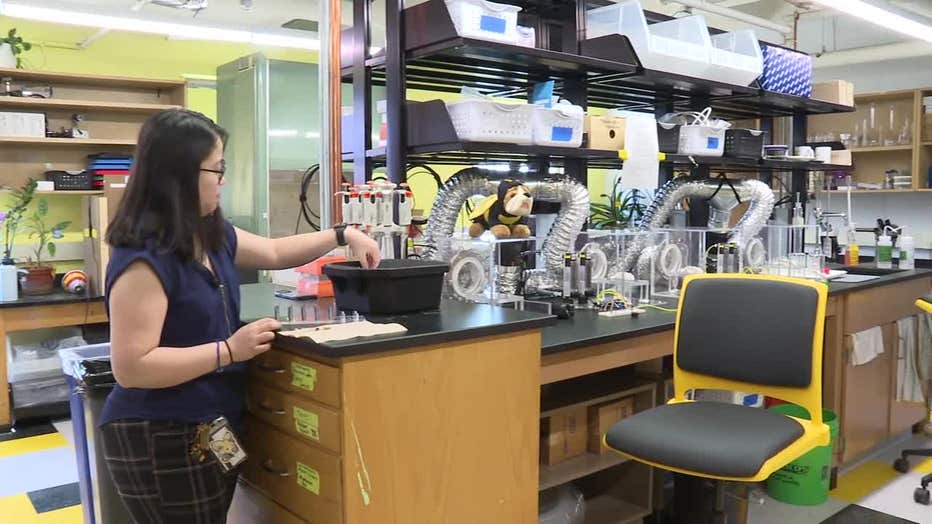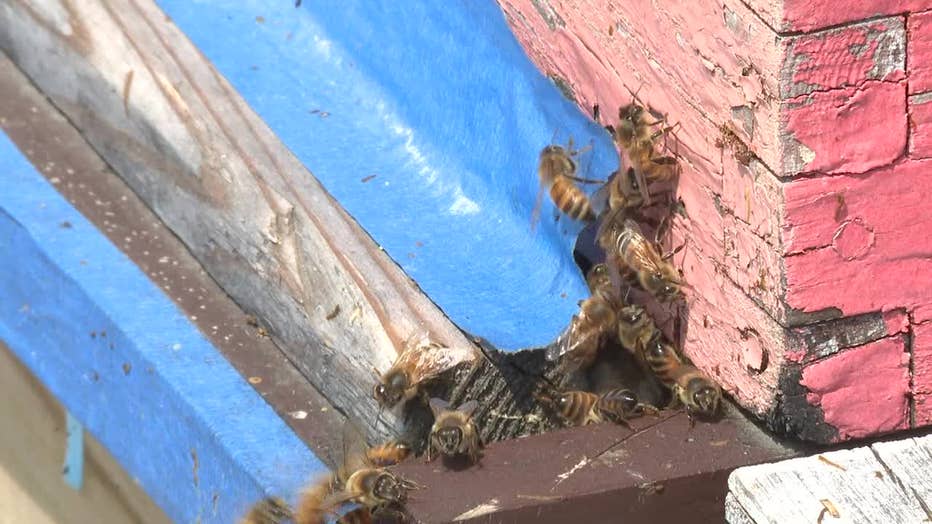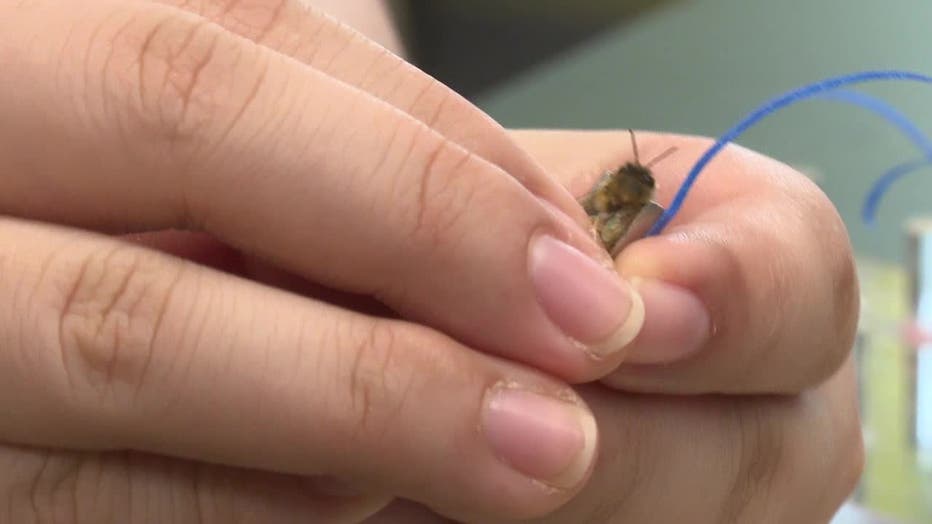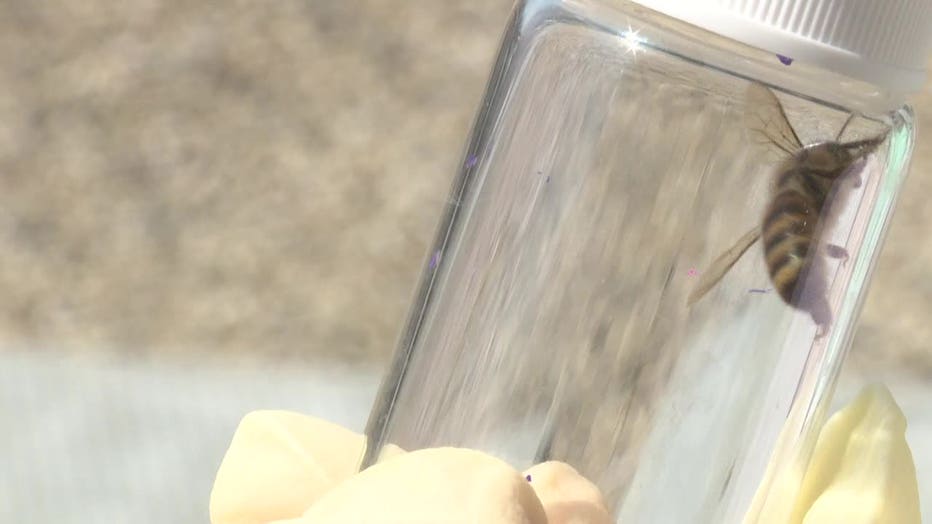Marquette University bee research; see why scientists are buzzing
MILWAUKEE - Bees in harnesses?! FOX6 News got an inside look on Thursday, May 12 at the unique research buzzing at Marquette University.
Spring has sprung – and that means the bees are out.
"The plants, the animals, everything in our ecosystem should be cared for, and we should be stewards of them," said Dr. Chelsea Cook, Biological Sciences Assistant Professor.
SIGN UP TODAY: Get daily headlines, breaking news emails from FOX6 News
The Cook Lab at Marquette focuses on honey bee behavior.
"If we’re dumping antibiotics, or chemicals, pesticides, herbicides, on our environment, we can us bees and their learning ability to evaluate if they’re being impacted by those chemicals and by what we’re doing to the environment," Cook said.

Marquette's Cook Lab, site of bee research
To get a closer look, you have to go to the roof.
"We’re taking individual bees from the colony to learn more about how the individuals work and how they work together to make the colony function," Cook said.
FREE DOWNLOAD: Get breaking news alerts in the FOX6 News app for iOS or Android
Then it's back to the lab, where the real magic happens.
"If you’ve ever heard of Pavlov’s dog where Pavlov would ring the bell and the dog would salivate. Same thing with bees. So we can train them to associate an odor with a food reward," said Justine Nguyen, Marquette University student.

Bee research at Marquette University
How do you get a bee to relax? Putting them in ice gets them nice and sleepy – so researchers can do their thing.
"I take a harness and gently place her snug against the harness," Nguyen said.

Harness affixed to bee at Marquette lab
Then, there is the test.
"You touch their antennae, so they smell the food, and they stick out their little tongues," Nguyen said.

Marquette's Cook Lab, site of bee research
When their research is done, we will know how chemicals, pesticides, all kinds of stuff we put into the environment, affect bees.
"Being calm, know that we live with them, we live amongst them, and we shouldn’t spray pesticides to get rid of them. We should just be careful and recognize that we live in their environment like they live in ours," Cook said.
The bees take care of us, our environment, food supply, even the economy. Now, scientists say it is our turn to take care of them.

